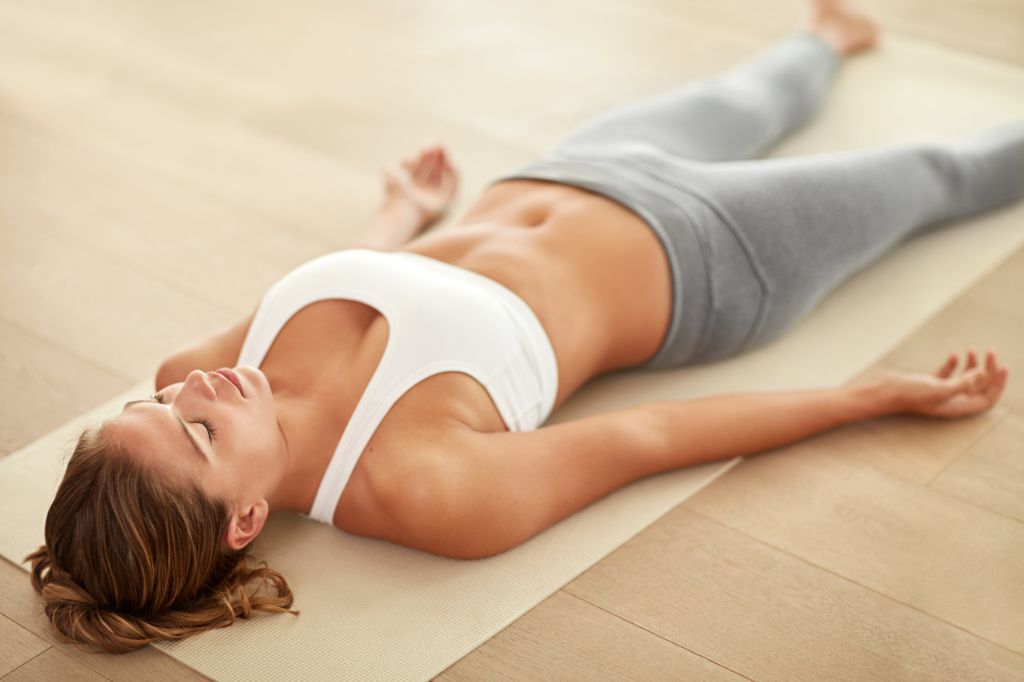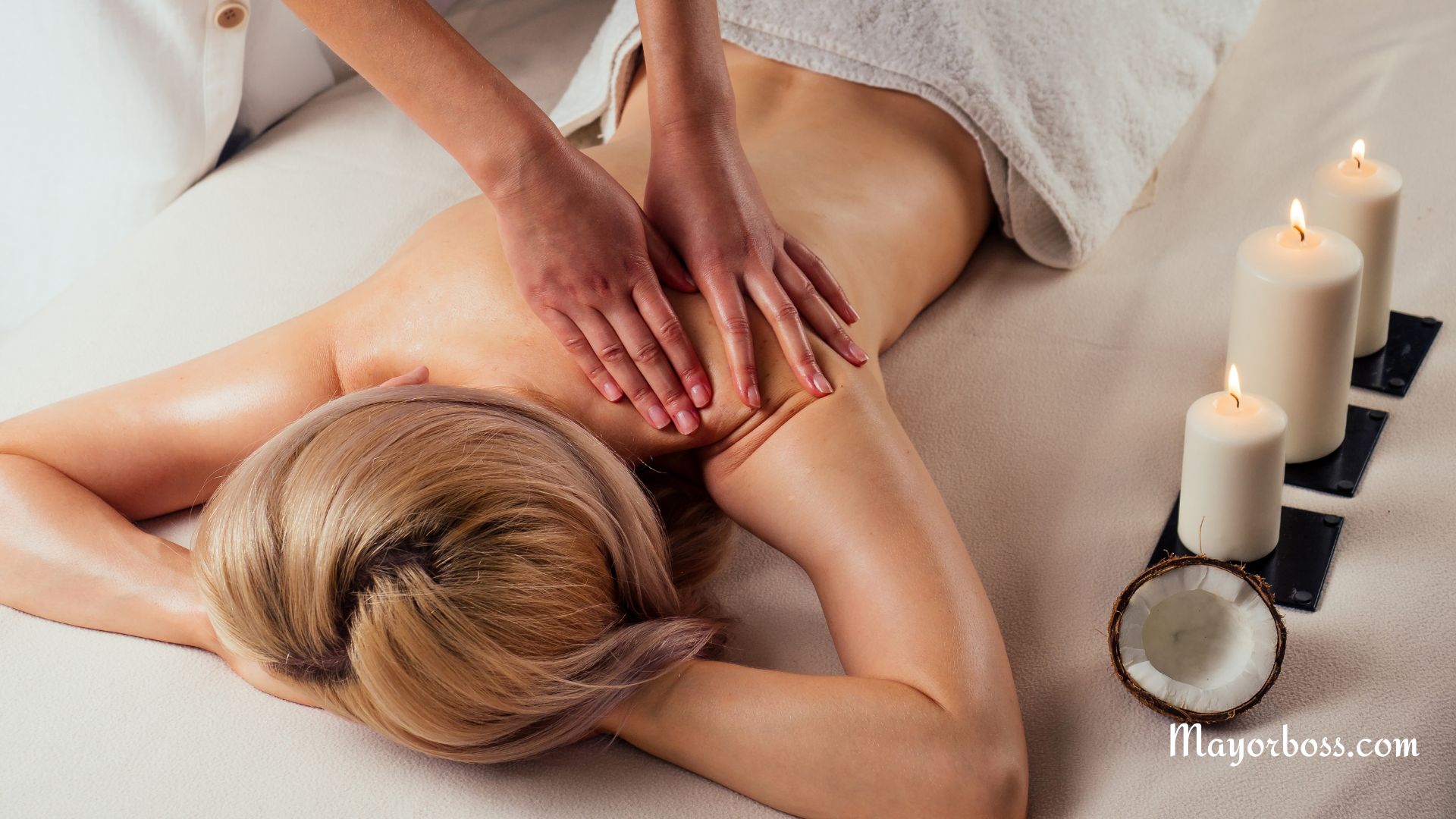Relaxation Techniques for Stress Relief
Are you looking for relaxation techniques? Stress is like that annoying friend who never seems to leave you alone. It can affect both your body and mind, making you feel tense, anxious, and out of sorts. While you can’t entirely avoid stress, you can learn to deal with it better. Various relaxation techniques can help you stay calm and focused, ranging from simple breathing exercises to guided imagery.

The Benefits of Relaxation Technique
- Improves Mood: Many relaxation techniques trigger the release of endorphins, your body’s natural mood lifters.
- Better Sleep: Practices like deep breathing and muscle relaxation can prepare your body for a restful night’s sleep.
- Boosts Focus and Concentration: Clearing your mind through meditation or mindfulness can make it easier to concentrate on tasks.
- Reduces Physical Tension: Techniques like progressive muscle relaxation help you identify and release muscle tension, making you feel more relaxed physically.
- Lowers Heart Rate and Blood Pressure: Methods such as deep breathing and visualization can help slow down your heart rate and lower blood pressure.
- Enhances Resilience to Stress: Regular practice can help you become less reactive to stressors, making it easier to handle life’s challenges.
- Elevates Energy Levels: Some techniques, like brief, focused breathing exercises, can actually energize you rather than make you sleepy.
- Improves Digestion: Reduced stress levels can lead to improved digestive function, as stress and anxiety can cause digestive issues like bloating and discomfort.
- Strengthens Immune System: Lower stress levels can boost your immune system, making you less susceptible to illness.
- Promotes Emotional Well-being: Relaxation techniques often lead to improved mental health, helping manage symptoms of disorders like anxiety and depression.
- Enhances Problem-solving Skills: A relaxed mind is often a more creative mind, making it easier to think outside the box and come up with solutions.
- Improves Social Interactions: When you’re less stressed, your social skills—like listening and empathy—often improve, leading to better relationships.
- Pain Management: Techniques such as deep breathing and guided imagery can be useful in managing chronic or acute pain.
- Better Control Over Emotions: Mindfulness and meditation teach you to observe your emotions without reacting to them, giving you greater emotional control.
- Increased Self-awareness: Techniques like mindfulness meditation can make you more aware of your thoughts and feelings, helping you understand yourself better.
Relaxation Techniques for Stress Relief
Simple Breathing Exercises
Breathing is something you do without even thinking about it. However, focusing on your breath can be a powerful way to relax. Try this simple exercise:
- Sit or lie down in a comfortable position.
- Close your eyes and take a deep breath through your nose.
- Hold it for a couple of seconds, and then breathe out through your mouth.
- Repeat this five times.
Afterward, you’ll likely feel more relaxed and centered.
Spiritual Connection Through Prayer
For many, prayer is a source of comfort and strength that provides a deep sense of spiritual well-being. It’s a moment to connect with a higher power, which can offer a unique form of stress relief and inner peace. Including prayer as a relaxation technique can offer a multi-faceted approach to handling stress, enriching both your spiritual and emotional landscape.
Progressive Muscle Relaxation
Sometimes, your body is tense without you even realizing it. A technique called Progressive Muscle Relaxation can help you fix that. How does it work? Simple. You’ll tense up different groups of muscles and then let them relax. Start with your toes and work your way up to your head. Once you’ve gone through all the muscle groups, you’ll find that your whole body feels more relaxed.
Visualization or Guided Imagery
Imagine being at your favorite place—maybe it’s a beach, a forest, or even your grandma’s kitchen. Close your eyes and picture every detail: the smells, the sounds, and how you feel. This technique is called guided imagery or visualization, and it’s a fantastic way to escape stress for a few moments.
Mindfulness and Meditation
Mindfulness means paying full attention to the present moment. It might sound easy, but it can be challenging when you’re used to always thinking about a million things at once. According to mindfulness experts, the best way to practice is to find a quiet place, focus on your breathing, and try to keep your mind from wandering. If it does wander (and it probably will), just gently bring your focus back to your breath.
Yoga and Exercise
You might not think of exercise as a way to relax, but it’s one of the most effective methods. When you exercise, your body releases chemicals called endorphins that make you feel good. Yoga combines movement with breathing exercises, giving you a double dose of relaxation.
Warm Up with a Hot Bath
Ever feel better after a hot shower or bath? That’s not just your imagination. Soaking in warm water can relax your muscles and give you a moment to pause and recharge. To boost the experience, consider adding Epsom salts or a few drops of your favorite essential oil.
Aromatherapy
Ever notice how some smells make you feel good instantly? Aromatherapy uses scents to help you relax and feel less stressed. Essential oils like lavender, peppermint, and chamomile are popular choices. Just a few drops in a diffuser or on a cotton ball can work wonders. According to experts in the field, the aroma signals your brain to relax and take it easy.
Music
You probably have a go-to playlist for when you’re happy, sad, or even angry. But did you know that music can also be a fantastic stress reliever? Soft, slow-tempo music can slow down your heart rate and lower your blood pressure. So the next time you’re feeling stressed, plug in your headphones and let the music carry you away.
The 4-7-8 Breathing Method
This is another breathing technique that you can easily do anywhere, even in a tense situation. Here’s how you do it:
- Close your mouth and breathe in through your nose for a count of four.
- Hold your breath for seven counts.
- Breathe out through your mouth for a count of eight.
- This completes one breath. Now, do this for four breath cycles.
Get Artsy: Drawing, Painting, and Crafting
Did you ever get lost in a craft project or a drawing when you were a kid? It turns out that engaging in artistic activities isn’t just fun; it’s also a great way to relax. You don’t have to be a pro; the act of creating itself can be therapeutic. So go ahead, grab some paper, and start doodling, or perhaps tackle that DIY project you’ve been putting off.
Social Support: Talk It Out
Sometimes, you need to vent. Talking about your problems with friends or family can give you a new perspective. Plus, it’s always nice to hear that you’re not alone. If you don’t feel comfortable talking to someone you know, consider speaking to a counselor or a professional. They’re trained to listen and offer advice on how to cope with stress.
Try Some Herbal Tea
Tea time isn’t just for socializing; certain herbal teas like chamomile, lavender, and lemon balm are known for their calming properties. According to herbalists, sipping on a cup can help you feel more relaxed and may even improve your sleep.
Laughter
It’s not just a saying; laughter really can improve your mood. Whether you watch a funny video or listen to a comedian, a good chuckle triggers the release of endorphins, those feel-good chemicals we mentioned earlier. Plus, laughter can also lower levels of the stress hormone cortisol.
Pet Your Stress Away
If you have a pet, you already know that spending time with them can make a world of difference in your mood. Studies even show that petting a dog or cat can lower your heart rate and blood pressure. If you don’t have a pet, a quick internet search can show you nearby animal shelters where you can volunteer. It’s a win-win for everyone involved!
Write It Down: Journaling
Sometimes, your thoughts can run around like crazy monkeys in your head. Writing them down can help you feel more in control. Plus, it allows you to identify the things that are bothering you, making it easier to tackle them later.
Read a Good Book
Reading is another way to escape the real world for a bit. Whether it’s a thrilling novel, an inspiring biography, or even a self-help book, losing yourself in a different world can be a welcome break from stress.
Positive Thinking
Yes, it might sound cliché, but thinking positively can actually help you manage stress. Whenever you find yourself bogged down by negative thoughts, try to flip them into something positive. For instance, instead of saying, “I can’t do this,” tell yourself, “I’ll do the best I can.”
Acupressure
Acupressure is an ancient technique where you press specific points on your body to release tension and promote relaxation. You can find guides online to show you where these points are and how to press them. Once you get the hang of it, it’s something you can do anytime you need a quick stress reliever.
Step Outside and Connect with Nature
Nature has a remarkable way of making us feel more relaxed and less stressed. Even a short walk in a park or garden can be rejuvenating. According to the American Heart Association, spending time in nature can lower stress hormones, reduce nervous system arousal, and enhance mood.
Water Therapy
If you have access to a pool or even a beach, swimming is another excellent way to combat stress. The water supports your body, and the rhythmic nature of swimming can help calm your mind. If swimming isn’t your thing, simply floating can also be quite relaxing.
Chew Gum to Ease Stress
It might sound too simple, but chewing gum can actually reduce feelings of stress. According to studies, the act of chewing gum can promote blood flow to the brain and help elevate mood.
There you have it! Those are some of the most effective relaxation techniques to help you deal with stress. Give them a try and see which ones work best for you.






